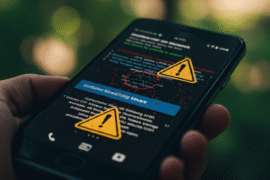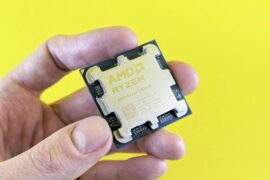This article may contain references to products or services from one or more of our advertisers or partners. We may receive compensation when you click on links to those products or services. Nonetheless, our opinions are our own.
Ethereum is seen as the best cryptocurrency for gaming. It uses advanced tech that gives gamers control and real-world value for digital actions.
Let’s explore Ethereum’s game-changing features pushing what’s possible in gaming.
Ethereum’s Role in Gaming

Ethereum’s blockchain is a major force in gaming, providing more than currency – it’s infrastructure for creativity and growth. Its decentralized structure creates an environment that helps gamers and developers grow, free from centralized control limits.
Imagine impacting a game’s economy and territory through your actions – Ethereum enables this player empowerment vision. Similarly, the rise of bitcoin live dealer games illustrates another innovative use of blockchain in gaming, merging Bitcoin with live dealer experiences to enhance trust and transparency.
In detail, Ethereum’s blockchain tech is the backbone of decentralized gaming platforms, radically changing how in-game assets are managed. Smart contracts enable intricate yet secure gameplay mechanics.
Each part builds an engaging ecosystem granting genuine ownership over gaming experiences, prompting exploration of these groundbreaking innovations.
Decentralized Gaming Platforms
Gaming tokens brought a new kind of crypto gaming. Players now have more power over virtual stuff. They use Ethereum platforms that are decentralized. Gamers here do more than just play. They form a big part of the community. Gamers can really make an impact through Decentralized Autonomous Organizations (DAOs).
They aren’t just there to play. They help shape what games are like. The play-to-earn way means they earn gaming tokens when they win or reach goals in games. These tokens have value outside of just games.
This has changed how gamers connect worldwide. Where you live doesn’t matter anymore. People from all over the world join these platforms together. They share ideas and trade assets freely here.
This makes gaming resources easier to get. It also made GameFi happen—mixing gaming with decentralized finance. Players can invest their earned gaming tokens to get Rewards.
Blockchain tech powers all of this. Ethereum-based casinos, tradable sports stuff, esports—they let people do more than play. They can earn crypto coins from trades, achievements, and more. They fully uses cryptocurrency in fun interactive entertainment.
In-Game Asset Management
Digital items in the Ethereum world have real value beyond their virtual existence. Through blockchain tech, players own these assets – from game characters, and weapons, to digital land plots. These are non-fungible tokens (NFTs), giving gamers ownership and trading opportunities.
Smart contracts revolutionized exchanges for these assets, ensuring high security and transparency by automating trades. This tech removes middlemen, granting gamers control and streamlined exchanges to focus on gameplay, not logistics.
Ethereum enables players to complete quests, earn tokens, and trade or monetize accomplishments in accessible marketplaces.
Smart Contracts for Game Mechanics
Ethereum’s game apps rely on smart contracts – automated agreements with coded terms. These streamline game dynamics, allowing devs to craft sophisticated, autonomous games with seamless reward distribution, occurrences, and interactions sans oversight – ensuring fair, uninterrupted gameplay.
Ethereum allows different games to work together easily by letting players move items between them. This creates a united gaming experience across many places.
The technology ensures no one is treated unfairly and every player has an equal chance to do well. It keeps a record of everything that happens so players and developers can trust that the games are being run properly.
Advantages of Ethereum for Gaming

Using blockchains in games has many benefits that normal platforms can’t provide. Everything that happens is recorded and can be checked, building trust.
Ethereum lets games work together across platforms, so players can move between different worlds and keep their valuable items. But Ethereum has some problems, too.
- The network gets overloaded sometimes, making transactions slower and more expensive.
- Security is very important for blockchain games, so Ethereum has to work hard to keep things safe.
- Since it’s decentralized, everyone has to agree on decisions, which can be complicated.
Although the blockchain faces challenges, its community tackles them directly. Layer-two solutions and Ethereum 2.0 aim to address scaling issues.
These innovations may help blockchain gaming operations handle growing demands. They could facilitate smoother scaling capabilities for the rapidly evolving gaming industry.
Security and Transparency
Blockchain revolutionized gaming with secure, transparent environments. Players experience true ownership of in-game assets. The unalterable ledger permanently records transactions, unlike fraud-prone conventional platforms.
Smart contracts automate transactions without intermediaries. This streamlines trading/selling while ensuring transparency and security.
Despite enhancing gaming security, Ethereum retains some vulnerabilities. Smart contract weaknesses indicate the need for ongoing platform improvements.
Still, Ethereum substantially advanced the gaming landscape, providing:
- The capability to engage strongly in worldwide competitions
- Secure ways to deal with payments and online contest sign-ups
- Avoiding limits of traditional banking when doing finance tasks related
Interoperability and Cross-Platform Support
Ethereum makes the promise of a unified gaming world a reality. Players can easily transfer digital items across platforms without issues. It’s a game-changer —use existing wallets to fund gaming accounts and acquire new assets.
The ability to trade digital goods across games is super convenient and transformative.
However, achieving full interoperability between blockchain gaming platforms is still tough technically. While Ethereum has progressed a lot here, creating a seamless gaming universe continues.
The goal: all games, no matter where from, interconnect, share assets, and build on each other – a truly integrated experience worldwide.
Scalability and Flexibility
When discussing Ethereum’s gaming role, scalability is unavoidable. High demand causes network clogs, slower transactions, and increased costs, negatively affecting gaming experiences.
But the Ethereum community keeps innovating. Layer 2 scaling solutions aim to handle more transactions cheaply, smoothing the path for gamers.
Ethereum 2.0 and sharding will change how blockchain handles transactions. These updates make Ethereum better for gaming communities and complex ecosystems.
As improvements happen, Ethereum’s flexibility for gamers’ needs is clear, securing its role as gaming’s backbone.
Real-World Examples of Ethereum-Based Games
Real examples show Ethereum’s gaming impact, beyond theories. These games highlight blockchain’s novel experiences and tangible player value. From digital pets to vast worlds and card battles, Ethereum games explore new digital frontiers.
Projects like Sorare, with football partnerships and GameFi growth, signal Ethereum’s gaming future. Notable companies eyeing this space mean massive potential. Ethereum’s dual role as platform and currency showcases its gaming industry evolution versatility.
CryptoKitties
CryptoKitties, an innovative blockchain game, captured gamers worldwide. Players breed, trade, and sell unique virtual cats using Ethereum. Each kitty has a special NFT—a 256-bit genetic code ensuring its distinctiveness and verifiable ownership.
However, the kitty artwork doesn’t live on the blockchain; Axiom Zen controls it. Players get limited rights to use the images—a nuanced detail about ownership of digital assets.
Developers cap potential kitties at around 4 billion to maintain rarity and value within the CryptoKitty ecosystem.
Although distinct digital assets are in-game, it is crucial to recognize that the associated imagery does not reside on a blockchain. It remains under control of Axiom Zen. The player receives restricted rights to utilize artwork—a subtle yet consequential detail regarding the possession of virtual properties.
By strategically limiting potential creation to approximately 4 billion felines, developers sustain scarcity and worth among participants of the CryptoKitty community.
Decentraland
Decentraland, a virtual space, lets users purchase, construct, and monetize digital land plots. Founded by Ari Meilich and Esteban Ordano, it transcends gaming to enable artistic expression and community interaction.
Users link Ethereum wallets to access themed areas—musical events in Vegas City, fashion shows on Fashion Street. The platform exceeds typical gaming, providing an environment fertile for creativity and connections.
Decentraland’s core economic system revolves around MANA, its native cryptocurrency token. MANA facilitates transactions like acquiring land parcels or trading virtual items within the game.
Holding MANA gives users governance rights, fostering user-driven management over the platform’s direction in the Decentralized Autonomous Organization (DAO). This showcases how Ethereum technology enables dynamic, participatory online worlds.
Gods Unchained
Incorporating blockchain technology, Gods Unchained brings a fresh dimension to trading card games, allowing players to trade earned or purchased cards for actual currency.
The game maintains player interest through regular expansions introducing new cards and gameplay dynamics. Within this gaming environment, participants can buy, sell, unpack card collections, and access exclusive amenities like a star store and workshop.
The $GODS token integration in Gods Unchained offers players several opportunities:
- Acquiring and staking tokens during gameplay
- Injecting additional strategic gameplay elements
- Providing financial incentives for increased platform interaction
This creative blockchain technology application highlights Ethereum’s escalating significance in blockchain games and the broader gaming industry.

Reviewed and edited by Albert Fang.
See a typo or want to suggest an edit/revision to the content? Use the contact us form to provide feedback.
At FangWallet, we value editorial integrity and open collaboration in curating quality content for readers to enjoy. Much appreciated for the assist.
Did you like our article and find it insightful? We encourage sharing the article link with family and friends to benefit as well - better yet, sharing on social media. Thank you for the support! 🍉
Article Title: Why Ethereum Is the Leading Cryptocurrency for Gaming
https://fangwallet.com/2024/04/29/why-ethereum-is-the-leading-cryptocurrency-for-gaming/The FangWallet Promise
FangWallet is an editorially independent resource - founded on breaking down challenging financial concepts for anyone to understand since 2014. While we adhere to editorial integrity, note that this post may contain references to products from our partners.
The FangWallet promise is always to have your best interest in mind and be transparent and honest about the financial picture.
Become an Insider

Subscribe to get a free daily budget planner printable to help get your money on track!
Make passive money the right way. No spam.
Editorial Disclaimer: The editorial content on this page is not provided by any of the companies mentioned. The opinions expressed here are the author's alone.
The content of this website is for informational purposes only and does not represent investment advice, or an offer or solicitation to buy or sell any security, investment, or product. Investors are encouraged to do their own due diligence, and, if necessary, consult professional advising before making any investment decisions. Investing involves a high degree of risk, and financial losses may occur including the potential loss of principal.
Source Citation References:
+ Inspo










































